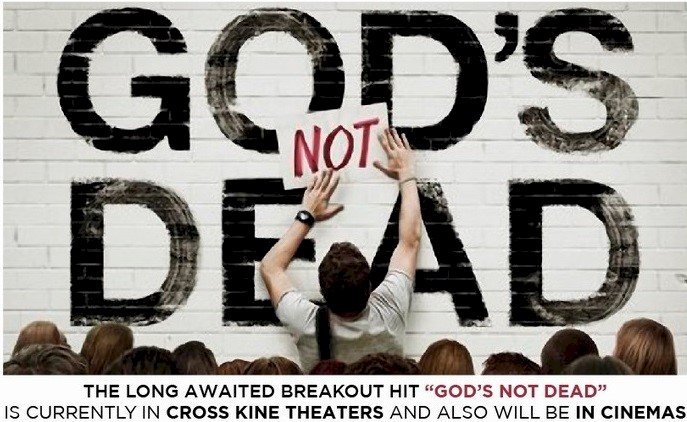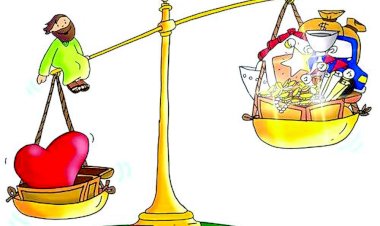Decline of Christianity is seriously hurting society
Interesting article about theists concerned about general loss of faith and so sound the alarm about decline of Christianity - it will harm cultural and ethical wellbeing of societies

Atheists sound the alarm: Decline of Christianity is seriously hurting society
Only a few years ago, the aggressive “New Atheist” movement was on the march, with rhetorical brawlers like Christopher Hitchens and renowned biologists like Richard Dawkins leading the charge against religion and the last vestiges of Christian faith in the West. Religion, Hitchens famously stated, “poisons everything,” and could only be considered, at best, humanity’s “first and worst” attempt to solve existential questions. If these cobwebbed superstitions could be blasted away by the refreshing winds of reason and the Enlightenment, a fundamentally better society would rise from the ashes—or so the thinking went.
But as Christianity fades further and further into our civilization’s rear-view mirror, many intelligent atheists are beginning to realize that the Enlightenment may have only achieved success because it wielded influence on a Christian culture. In a truly secular society, in which men and women live their lives beneath empty heavens and expect to be recycled rather than resurrected, there is no solid moral foundation for good and evil. Anti-theists like Christopher Hitchens mocked and reviled the idea that mankind needed God to know right from wrong, but scarcely two generations into our Great Secularization and we no longer even know male from female.
It would be interesting to know how the late Hitchens would have responded to the insanities that have proliferated since his passing, and whether he would have come to realize, as some of his similarly godless friends have, that one does not need to find Christianity believable to realize that it is necessary. Douglas Murray, who has taken to occasionally calling himself a “Christian atheist,” has publicly argued with Hitchens’ fellow “Horseman of the Apocalypse” Sam Harris over whether a society based on Enlightenment values is even possible without Christianity. Harris holds out hope that such a society is possible. Murray is sympathetic, but sceptical.
Increasingly, Murray admitted, he believes the atheist project to be a hopeless one. When he joined me on my show recently to discuss his latest book The Madness of Crowds, he reiterated that he believes that in the absence of the secularist’s ability to hammer out ethics on fundamental issues such as the sanctity of life, we may be forced to recognize that returning to faith is the best option available to us. There is a very real possibility, he noted, that our modern concept of human rights, based as it is on a Judeo-Christian foundation, may very well outlive Christianity by only a few short years. Cut off from the source, our conception of human rights may shrivel and die very quickly, leaving us fumbling about in a thick and impenetrable darkness.
Without the Christian underpinnings of our society, it will be up to us to decide what is right and wrong, and as our current culture wars clearly illustrate, our civilization will tear itself apart before it regains consensus. Many optimistic atheists recently believed that once God was dethroned and banished, we could finally live as adults and get on with the utopian project of creating a society based on faith in ourselves. These sceptics were unfortunately sceptical about everything except the goodness of humanity, despite the fact that they had no metaphysical or even Darwinian basis for this easily disprovable assumption. Jordan Peterson’s phenomenal popularity is partially based on his recognition that people are not generally good, and that the past century proves this with the blood of millions.
It is the abject failure of this thesis that is leading some prominent atheists to begrudgingly admit that perhaps Christianity was more necessary than they thought. As recently as 2015, Richard Dawkins (author of The God Delusion) was arguing that children needed to be protected from the religious views of their parents, and made a series of alarming comments regarding the rights of parents to educate their children in the tenets of their religious faith. By 2018, however, Dawkins was warning that the “benign Christian religion” might be replaced by something decidedly less benign, and that perhaps we should take a step back to discuss what might happen if the evangelical secularists are successful in destroying or banishing Christianity. Other atheists and agnostics, from Bill Maher to Ayaan Hirsi Ali, have echoed Dawkins’ sentiments. This is a radical shift in only a handful of years—and the fact that atheists are sounding the alarm should be a warning to Christians about the consequences of our ongoing secularization.
Dawkins has now come out and repudiated his previous belief that Christianity should be banished from society even more firmly. In fact, he told The Times, ending religion—once his fervent goal—would be a terrible idea, because it would “give people a license to do really bad things.” Despite the fact that Dawkins has long argued that the very idea of the God of the Bible being necessary as a basis for morality is both ridiculous and offensive, he appears to be backtracking. “People may feel free to do bad things because they feel God is no longer watching them,” he said, citing the example of security cameras as a deterrent to shoplifting. One wonders if he has heard Douglas Murray remind people that the Soviets murdered their millions in the firm belief that there was no Judge waiting for them when the killing was over.
Dawkins discusses these ideas further in his latest book, Outgrowing God. “Whether irrational or not, it does, unfortunately, seem plausible that, if somebody sincerely believes God is watching his every move, he might be more likely to be good,” he confessed begrudgingly. “I must say that I hate that idea. I want to believe that humans are better than that. I’d like to believe I’m honest whether anyone is watching or not.” While this realization is not a good enough reason for him to believe in God, Dawkins says, he now realizes that the affirmation of God’s existence does benefit society. For example, Dawkins admitted, “It might bring the crime right down.”
Dawkins’ conversion to the belief that Christianity is good—and perhaps even necessary—for Western civilization to function in harmony is nothing short of mind boggling. Dawkins has been one of secularism’s most intolerant fundamentalists, a man who believed that parents should be denied the right to pass on their faith and that the government should actively side with the godless over the faithful. In a few short years, he is changing his tune. Human beings, he seems to have recognized, cannot be counted on to be automatically good and to operate in the spirit of harmony and solidarity that he and his fellow New Atheists treasure.
And in the absence of an inherent goodness of humanity, how can we count on people not to tear apart a civilization built by men and women of faith?
The answer is a simple one: We need God.
- First published on the LifeSiteNews website on November 4, 2019


















